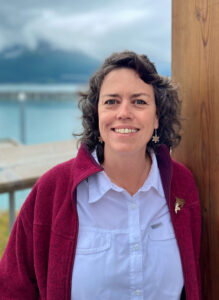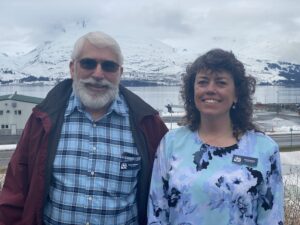
Since its inception, the Council has placed a high value on keeping a historical record of documents related to the transportation of oil through Prince William Sound. This includes information that documents the background and rational for implementing many of the safeguards put in place based on lessons learned from the Exxon Valdez oil spill. Our archive today is home to over 36,000 files containing a wealth of information.
Many of these documents are scientific studies and technical reports sponsored by the Council, dating back to the early days of our existence. A great example are two studies conducted by Dr. Richard Fineberg in the early 2000s, one on the profits from the oil industry and another on how the industry plans to clean up its facilities after oil no longer flows through the pipeline.
Dr. Fineberg, who died in 2024, conducted studies for other organizations, and our internal document archives contain a record of many of them. A look through some of these is enlightening, such as his 1996 report titled “Pipeline in Peril – A Status Report on the Trans-Alaska Pipeline.” This report was sponsored by the Alaska Forum for Environmental Responsibility, which is no longer in business, to look into reports from “concerned employees” that Alyeska had been cutting corners, putting employees and the environment at risk.
These sentiments echo statements made by concerned employees starting in 2022, as documented in our 2023 report by Billie Pirner Garde titled “Assessment of Risks and Safety Culture at Alyeska’s Valdez Marine Terminal.”
Who is paying attention to these details?
After the Exxon Valdez oil spill, the U.S. Congress found that complacency on the part of industry and government was a contributing factor to the incident. The writers of the Oil Pollution Act of 1990 included a call for the creation of citizen councils to give citizens a voice in the decisions that can put their livelihoods, resources, and communities at risk.
Our organization is one of those councils. Our 2023 Garde report is a reminder that our mission and purpose are not only still relevant, but needed just as much if not more today. Fortunately, upon receiving the Garde report, Alyeska initiated a hard look at their safety culture, technical capacity, process and policy, as well as the safety concerns brought forward, and has taken actions to address many of the concerns.
Why is oversight important?
Walt Parker, former member of our Board, had a long history of involvement with the oil industry in Alaska. Among the many roles he served during his career, Parker was appointed chairman of the Alaska Oil Spill Commission that was created to investigate the causes of the Exxon Valdez spill. The Commission issued 52 recommendations to improve national, state, and oil industry policies, including one recommendation that called for the creation of our Council. In the forward to their final report, “Spill: The Wreck of the Exxon Valdez – Implications for Safe Transportation of Oil,” Parker described their efforts in the 1970s to design a system that would prevent spills from the soon-to-be oil transportation facility.
Parker wrote that the 1989 spill “could have been prevented if the vigilance that accompanied construction of the pipeline in the 1970s had been continued in the 1980s.”
Instead, as the commission discovered, by 1989, complacency and cost-cutting had returned, leading to disaster.
Fighting complacency
The Council was created, in part, in anticipation of a time when memories of the Exxon Valdez oil spill begin to fade. When there is no one left who can recall the smell of the oil, the sight of suffering wildlife, the feel of anger and despair because livelihoods may have been destroyed, it is more likely that protections may begin to appear stale, burdensome, and unnecessary.
The fact that there has not been another major oil spill in our region since 1989 is a testament to the safeguards put in place following that disaster. These safeguards are built on many lessons learned over time; historical knowledge that is key to maintaining our present system of prevention and preparedness. It is critical that industry, government, and citizen leaders remain cognizant of that history. The Council will always advocate for maintaining and improving our current systems, as well as staying vigilant against measures that could allow complacency to weaken existing protections.

